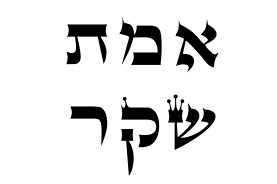War or Peace: It’s Our Choice

On June 10, 1963, President John F. Kennedy delivered a commencement address at American University in Washington, D.C. that many historians believe helped seal his fate in Dealey Plaza on that infamous day of November 22 later that year. What did he say that was so unacceptable and inappropriate that it may have fueled the conspiracy to assassinate him in broad daylight less than six months later?
This is what he said: “I have, therefore, chosen this time and this place to discuss a topic on which ignorance too often abounds and the truth is too rarely perceived—yet it is the most important topic on earth: world peace. What kind of peace do I mean? What kind of peace do we seek? Not a Pax Americana enforced on the world by American weapons of war. Not the peace of the grave or the security of the slave. I am talking about genuine peace, the kind of peace that makes life on earth worth living, the kind that enables men and nations to grow and to hope and to build a better life for their children—not merely peace for Americans but peace for all men and women—not merely peace in our time but peace for all time.”
President Kennedy made three main points in that speech. First, he challenged the notion that war is inevitable. Second, he wanted to initiate a debate on his nation’s attitude toward the Soviet Union. Third, he sought to reexamine his nation’s attitude toward the Cold War in general. His vision for world peace was profoundly simple: seek not power over others, rather seek to empower others. In short, he was laying down the gauntlet and declaring war on his own nation’s military-industrial complex that his predecessor, President Dwight D. Eisenhower warned about in his Farewell Address to the American people a year and a half earlier on January 17, 1961. Eisenhower said the following: “This conjunction of an immense military establishment and a large arms industry is new in the American experience. The total influence—economic, political, even spiritual—is felt in every city, every State house, every office of the Federal government. We recognize the imperative need for this development. Yet we must not fail to comprehend its grave implications. Our toil, resources and livelihood are all involved; so is the very structure of our society. In the councils of government, we must guard against the acquisition of unwarranted influence, whether sought or unsought, by the military-industrial complex. The potential for the disastrous rise of misplaced power exists, and will persist.”
There are certain truths that are so well-guarded that few dare speak openly of them. And this is one of them—that war is without a doubt the most lucrative business and the most effective mechanism for societal engineering that men of influence, wealth, power and unbridled lust have ever come up with. Therefore, any influential individual who is perceived as threatening that institution becomes a target.
Major General Smedley Butler was a 34-year career Marine officer who fought in numerous wars including the Philippine-American War, the Boxer Rebellion, the Mexican Revolution and World War I. At the time of his death in 1940, he was the most decorated Marine in U.S. history. So when it came to the topic of war, we would do well to pay attention to what he had learned. And what was that? He wrote it all down in a short book called “War is a Racket” which opens with these words: “War is a racket. It always has been. It is possibly the oldest, easily the most profitable, surely the most vicious. It is the only one international in scope. It is the only one in which the profits are reckoned in dollars and the losses in lives. A racket is best described, I believe, as something that is not what it seems to the majority of people. Only a small ‘inside’ group knows what it is about. It is conducted for the benefit of the very few, at the expense of the very many. Out of war a few people make huge fortunes.”
It is no different today. Whether we are dealing with local riots, civil wars, battles between nations, or wars among alliances of nations, it is always the same. It makes no difference. Wars are rarely accidental events. Rather, they are planned (oftentimes many years in advance) and instigated by the psychopaths at the expense of the masses.
But where do wars really come from? They come from lust—lust for power, lust for money, and lust for licentiousness. Therefore, if we really want to experience ‘peace in our time’ let alone ‘peace for all time’ as Kennedy envisioned, we need to break our own lusts and do all we can to teach others how they can break theirs. There is no other way and there are no shortcuts. And that is why war is so common (but not inevitable, as Kennedy correctly understood) and why peace is so elusive. War is so common because we all have lusts (with the exception of the Mashiach who will have succeeded in breaking all of his lusts). And peace is so elusive because the only way for peace to emerge in this world is for people to break their own lusts—and that isn’t so easy. It takes tremendous effort.
The existence of separation or division [פִּרוּד, pirud] presents us with the opportunity for either war or peace. A famous Midrash relates an ancient disagreement about which of Hashem’s attributes should be employed to create the world, gevurah [strict justice] or chesed [kindness]. With gevurah, the slightest transgression would be met with instantaneous annihilation, and with chesed, everything would be permitted and chaos would reign. Of course, both forces are needed but the debate centered on which would be more fundamental. It came out that Hashem created the world through chesed, as it is written in Tehillim 89:3: עוֹלָם חֶסֶד יִבָּנֶה (The world will be built on chesed). But gevurah would still exist because it plays an important role. Because these two opposing forces or attributes would coexist, harmony, i.e. peace, would need to be created between them. This peace is in the attribute of tiferet [splendor, beauty, truth] which is a force (or light) which contains chesed and gevurah. By way of analogy, if you heard someone banging cymbals together really loudly and then heard someone else playing the flute, you might think to yourself that there is no way for these two sounds to coexist. However, if you went to the symphony hall and experienced the finale of Tchaikovsky’s fourth symphony for yourself, you would realize that you were wrong. By experiencing the reality, you would appreciate the true meaning of peace, because peace is the harmonious connection between two opposing forces as it is taught in Likutei Moharan 80: וּמַה הוּא הַשָּׁלוֹם? שֶׁמְּחַבֵּר תְּרֵי הֲפָכִים (And what is peace? It is that which connects two opposites).
Therefore, mankind, individually and collectively, is faced with an existential question. What do we do with pirud (which was necessary for the creation of the world and continues to be necessary for its existence)? If we allow lusts to rule within us, then peace will elude us and the pirud will continue (and expand). On the other hand, if we learn to rid ourselves of lusts, then we will bring harmony or unity to the worlds while allowing both sides to express themselves. This is why peace (or the lack thereof) emerges from within us (L.M. 33:1). Our job is to seek and pursue peace (Tehillim 34:14). This ought to be our primary objective in life, for everything else depends on it.
When we learn G‑d’s ways, we often come up against a very common roadblock. Our heads may acknowledge truth but our hearts lag behind, seemingly incapable of feeling or actualizing what the head knows. This is why the verse in the Shema (Devarim 6:5) states that we are to love Hashem with all of our heart (and soul and resources). Loving Hashem with one’s mind isn’t even mentioned. Getting the heart engaged is the real challenge for creating peace. For example, we may know that it is inappropriate and counterproductive to harbor a grudge against another Jew, but it’s another matter altogether to materialize that truth by rooting out the grudge totally. Or perhaps we may know that Hashem controls our external world for our good, but it’s another matter altogether to feel happy about what happens to us all the time. But when we make peace between our head (what we know) and our heart (what we feel) through prayer, we will experience not only internal peace but external peace, i.e. peace will spread beyond ourselves. And if we all learn to do it, then war will be abolished and we will experience enduring and everlasting world peace, i.e. ‘peace in our time’ and ‘peace for all time’.
This is the meaning of this publication’s tagline, ‘Connecting Worlds.’ The worlds that we all need to connect start within ourselves, the world of the head and the world of the heart. Externally, they are the world of one person, such as a husband and the world of another person, such as a wife, or the world of a father and the world of a son, etc. Beyond that, they are the world of one family and the world of another family, and then the world of one community and the world of another community, and then the world of one nation or people and the world of another nation or people, etc. On an even larger scale, each of us has a role in connecting the upper worlds with the lower worlds. Fundamentally, to connect worlds is to build universal peace—peace everywhere and peace at every level, as it is written (Yeshayah 9:6): לְמַרְבֵּה הַמִּשְׂרָה וּלְשָׁלוֹם אֵין־קֵץ (There will be no end to the abundance of governance and peace).
Creating peace is not a spectator sport. It requires each one of us to enter the arena. We must experience the challenge, not just think or talk about it. How come? It is because experience transcends even our best and most perfect thoughts. For example, someone can describe to you the sublime beauty of that same Tchaikovsky symphony that we mentioned earlier, but you will never be able to think or talk about it in any meaningful way unless you experience it yourself. Go to the symphony hall and experience the beauty of peace.
In conclusion, connecting worlds means materializing the meaning of ה' אחד (Hashem is one) in everything. It shouldn’t be something we say just during Shacharit or Ma’ariv and then go about our business the rest of the day as if it has no meaning to us, G‑d forbid. Hashem echad is the essence of our lives, to believe it and to conduct ourselves in such a way as to reflect that belief. And that is why it is written (Zecharyah 14:9): וְהָיָה יְיָ לְמֶלֶךְ עַל־כׇּל־הָאָרֶץ בַּיּוֹם הַהוּא יִהְיֶה יְיָ אֶחָד וּשְׁמוֹ אֶחָד (And Hashem will be king over all the earth, in that day Hashem will be one and His name one). May we merit to experience the fulfillment of this prophecy speedily in our days. Amen, selah.







Itís hard to find knowledgeable people for this subject, but you seem like you know what youíre talking about! Thanks